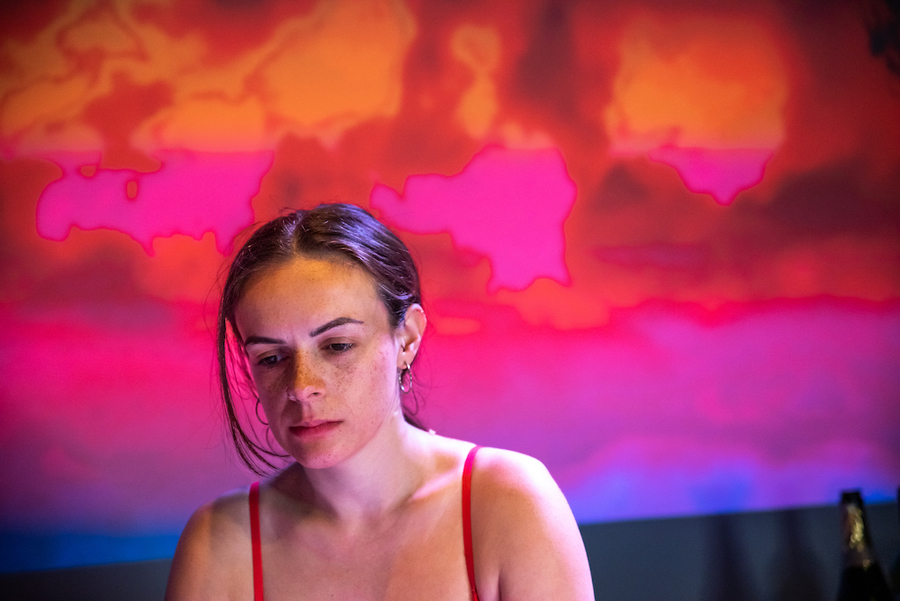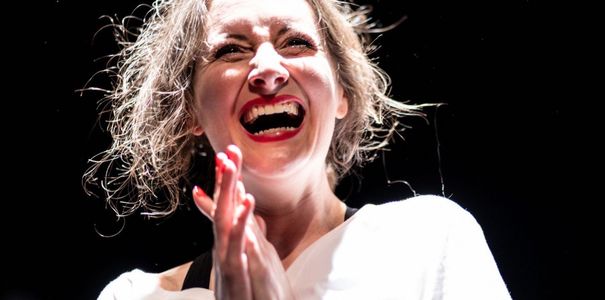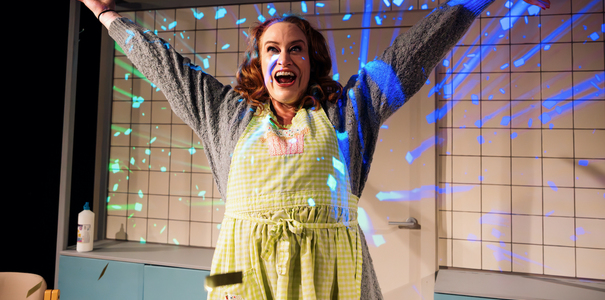Exploring Trauma as Art
The performers behind Lie Low, Sad-Vents and Summer Camp for Broken People discuss mining trauma for art and connection

Not everyone’s born with gallows humour. While some are happy to exert it thoughtlessly or problematically, there are others for whom it dug its roots in deep after a traumatic experience or a loss, leaving them reluctant but “happy” members of the Gallows Humour Club. This club is one Ciara Elizabeth Smyth is fine to be a member of.
“If you want to make that a thing, I’m on board,” she says. “We can have wine.”
Smyth’s “gallows” refers to theatre-makers granting their audience the permission to laugh at what they are presenting. Her show Lie Low is about nightmares and trauma and trying to find yourself again. It’s a dark mixture of incidents that have happened to her, experiences she has a unique perspective on, and things she’s made up.
“One of the influences for the play was I got a diagnosis of post-traumatic stress disorder,” she explains. “And it was manifesting itself in a way I really hadn’t anticipated. I was convinced I was going to get murdered.”

Lie Low's Charlotte McCurry, photo by Ciaran Bagnall
It’s a heavy sentence, she admits, but can’t help laughing at the sheer ridiculousness of what her mind was insistent would happen to her. Letting the audience respond in the same way and not gatekeeping their reactions is an important part of her work.
“I’m very serious about comedy,” she says. “There’s a real physical connection there, a real generosity to it, and a mathematical element that I find really exciting.”
This makes sense. Laughter is an innate reaction, so when we laugh unexpectedly at something that isn’t, on the surface, acceptable or amusing, we can feel shock or horror at our response. That’s what Smyth and fellow trauma explorers are hoping to extract from their audiences.
“It’s tragicomedy, heavy on the comedy,” says Eleanor Hill, whose one-woman show Sad-Vents emerged from a real breakdown she had during lockdown. It was an unhidden, unfiltered experience for Hill, who couldn’t connect with anyone in real life due to restrictions, so turned instead to Instagram to scream into the void.
“I spent a lot of time at home in my room just losing my mind,” she continues. “I put it all over Instagram because that was my portal to the outside world. Now I’m well, I looked at it and thought, ‘This is potentially art, in a really tragic way.’”
Hill remains steadfastly behind her phone for most of the performance, with audiences encouraged to take photos or videos, and reply to messages she’ll be sending them throughout. This digital/in-person confusion is inspired by Hill noticing what she calls, “secret watchers”: people she knew who would religiously binge her Insta-breakdown, but never reach out in real life. By placing her audience behind their screens, she essentially transforms them into these viewers and forces them to consider how we view the performativity, or sincere lack thereof, of social media. Pics or it didn’t happen.

Emily Beecher, photo by Alex Brenner
For Emily Beecher, whose Summer Camp for Broken People deals with spending her time in two different spaces: the Priory and being a single mum to an eight-year-old, the space inhabited by someone experiencing trauma is also a central theme.
“It’s about how we navigate different spaces when we’re unwell,” she says. “But also about what it takes to put a broken human spirit back together.”
This question is explored through a variety of media: projection, sound design, video. Their ability to shift and change mimics Beecher’s experiences of constantly having to move from one mental space to another, questioning her role in things, challenging pre-existing notions of trauma and recovery, and wanting to “burn the fucking house down.
“Theatre as a medium for trauma is conversational. It’s live and it’s visceral. I can feel the audience, but they can also feel me and each other. That’s an incredible thing to have when you’re talking about something like trauma which is isolating. It’s an amazing way to make us feel less alone."
 Floods of Fire with Electric Fields & the ASO
Floods of Fire with Electric Fields & the ASO
 Review: Time Machine
Review: Time Machine
 Review: Antigone in the Amazon
Review: Antigone in the Amazon
 Review: I Hide in Bathrooms
Review: I Hide in Bathrooms